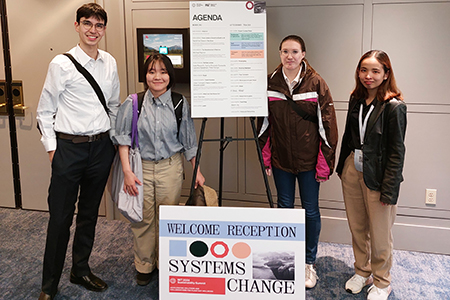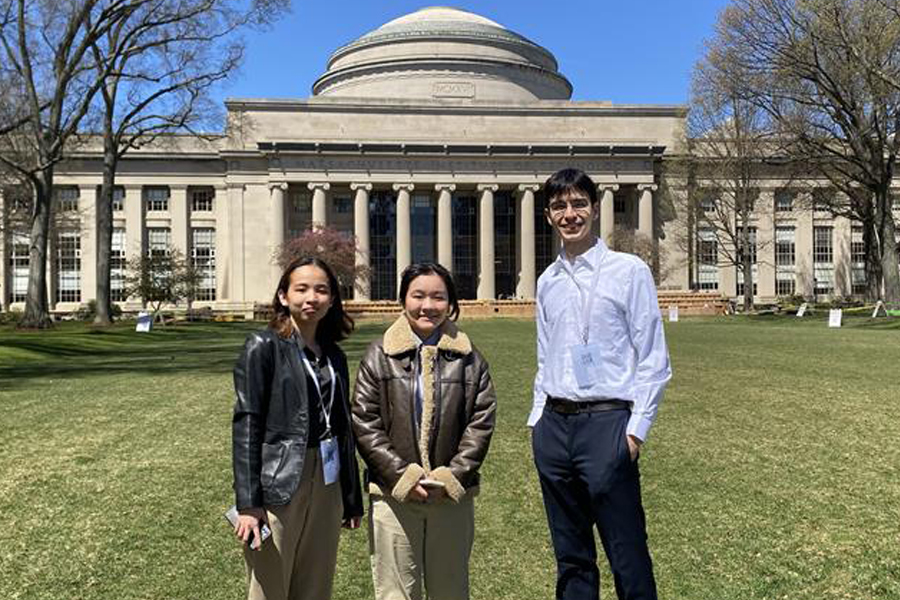TYPE
TOPIC
In April, students from the University of Wisconsin-Superior’s Sustainability Club attended the MIT Sustainability Summit 2024: Systems Change in Boston.
Students from the Sustainability Club who attended the summit included Mikaela Matias, club president; Saya Kondo, club vice president; Aubrey Locke and Lucas Palomino.

“Before attending the meeting, I was hoping to learn about the latest innovations in sustainability and agriculture,” said Palomino, a junior majoring in computer science with a self-designed major in environmental studies. “I set myself a goal to absorb as much information as possible, while not worrying too much about networking or making impressions. To my surprise, not only did I learn much more than I anticipated, but I also met some wonderful people who have the same motivation to make a real impact in the world.”
The summit took place in the Boston Marriott Hotel near the MIT campus, where students from throughout the country had the opportunity to listen to presentations from top leaders in the field of sustainability.
The theme of the event was systems change and it featured three tracks with topics of biodiversity and agriculture, built environment and transportation. The goal of this event was to challenge attendees to collaborate and prototype solutions to tackle the most urgent areas of sustainability.
Students from UW-Superior joined the biodiversity and agriculture track, where they teamed with graduate sustainability students, field experts and professionals to propose a solution to the problem of food security and biodiversity conservation.
“Personally, I had an incredible time listening to motivated individuals and disruptors looking to make our systems more sustainable,” said Palomino. “Some of the highlights included learning that cement contributes as much as nine percent of all human emissions, or that up to 35-percent of miles driven by trucks are ‘empty miles.’ Facts like these challenged my perspective about how to approach these global issues more efficiently and sustainably.”
